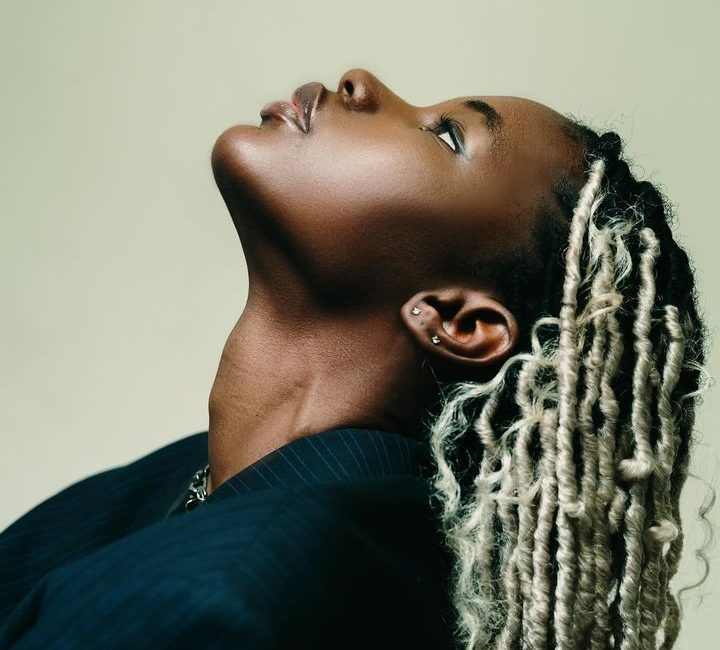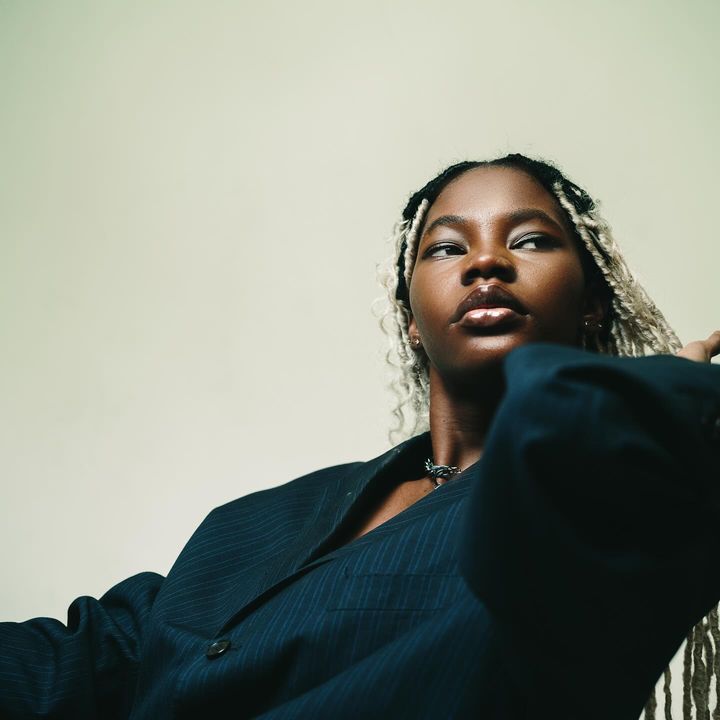
Introducing Haeven: A Fresh Talent with Unmatched Command of Hip-Hop.
Meet Haeven, a Nigerian-Ghanaian artist who found music as an avenue way deal with her personal life difficulties. Her name, Haeven, is a reflection of her journey, symbolizing a shift from seeking solace in others to becoming her own source of strength—a “safe haven” in the midst of life’s challenges.
One of the most distinctive aspects of Haeven’s music is how she lets the instrumentals take center stage before introducing her powerful, hard-hitting flows. Her voice, characterized by a unique raspy quality, adds to the dynamic energy of her tracks, creating a sharp contrast with her softer speaking tone.
Coming from a family of creatives, it was natural for Haeven to pursue a path in the arts. With a sister who is an author, another who is a scriptwriter, and a brother who is a painter, along with parents involved in architecture and design, creativity has always been woven into the fabric of her life. This rich artistic background influences her eclectic sound, which blends hip-hop, soul, RnB, and Afro elements.
Haeven refuses to confine herself to one genre. Her approach to music is guided by her emotions—hip-hop when she’s angry, RnB when she’s heartbroken, and soul when she’s reflective. She thrives on the freedom to explore different sounds, allowing her creativity to flow without boundaries.
Originally from Enugu, Nigeria, Haeven’s experiences have been shaped by her life in both Nigeria and Accra, Ghana. Her creative process is deeply personal, fueled by her experiences, and this raw emotion comes through in both her writing and production. Before she started rapping, Haeven was drawn to poetry, and the poetic sensibility is still evident in the lyrical depth of her music.
In every song, Haeven’s artistry shines, demonstrating her versatility and commitment to creating music that resonates on a deep, emotional level. Her ability to draw from her life experiences and channel them into diverse musical expressions makes her a rising force in the industry, ready to carve her own unique path.
How did the name Haeven come about, and what’s the inspiration behind it?
My real name is Kachi, but I don’t use it often in Ghana because it’s frequently mispronounced. Kachi is reserved for family and close friends. The name Haeven came from a place where I felt like I was going through hell and couldn’t explain it to anyone. There was no one to hold my hand, so I had to muscle my way through and become the person I needed for myself at that time. It’s like a cave, a place of protection from the storm. The name is an amalgamation of “Heaven” and “Haven”—a safe space that was supposed to save me. Growing up with pastor parents, my faith has always been important to me, but during that period, God and I had a complicated relationship. I needed solace, something to remind me I was just a step away from grace. I hope that translates into the lives of others through my music.
Moving from Nigeria to Ghana, did you ever feel caught between the cultural differences?
Personality-wise, I feel intrinsically more Nigerian, but I’ve been in Ghana longer. So, I do get caught in between, especially when it comes to things like food or celebrity drama. I love the feeling of claiming both sides, though—it’s like having the best of both worlds.
You come from a creative family—your sister is an author, another sister a scriptwriter, your brother a painter, and your parents are architects and designers. How has that influenced you?
I think I’m incredibly privileged because my parents were supportive and also creative. My mom was a fashion designer, a perfume maker, and an amazing storyteller. She used to say, “You have all these talents, and you’re not using them.” My dad, being an architect, brought structure to our creativity. He always said, “Live a life you’d always want to wake up to, not one you dread.” He was a realist, while my mom was the dreamer. I took more after my mom in that sense. My dad never understood why I wasn’t always at the desk. I think it’s why I can’t handle a 9-5; I prefer work where I have creative control. It’s a challenge, but I’m grateful for having the best parents.
What’s the inspiration behind your music?
When I was in a dark place, the only person I could talk to was myself. Especially being neurodivergent in a West African context, where people don’t always understand things like depression or mental health. Many think it’s a choice or “rich people’s problems.” Music from artists like Stromae and old soulful tunes helped me through those times, making me feel less alone. I want to make music that does the same—music that makes people feel understood and seen.
Who inspired you to pursue this path?
My mom. Regardless of what situation she was in, she always found a way to be a light to others, and that’s what I’m trying to do with my music.
If there was a book about your life, what would the title be?
“Head Above Water.” I spend half my time just trying to keep afloat, hoping that one day I’ll swim, but until then, I’m just surviving.
What was modeling like for you, and do you still model?
I always got asked if I was a model, but I never took it seriously until Afrofuture (formerly Afrochella) happened. I decided to give it a shot, even though I had never worn heels before. I had two weeks to learn to walk the runway. I didn’t think my walk was great, but I guess they saw potential. I love walking; it’s like embodying a character for five minutes. After that, I started doing commercials. Modeling is different from music because you don’t have as much creative control, but I enjoy helping bring someone’s vision to life. Since then, I’ve been juggling both music and modeling.

What’s a quote you live by?
Someone once told me, “If you’re not having fun, you’re not doing it right.” That stuck with me.
What’s something you wish you had done earlier in your career?
I wish I had believed in myself and my sound earlier. I started working on music professionally in late 2021, and I was scared to speak up in the studio when things didn’t sound the way I wanted. I wasn’t confident about my individuality and my story. I think if I had been more assertive, my journey might have been different. But I’m grateful for how far I’ve come.
What was the inspiration behind your song “Disrespect”?
“Disrespect” came from a place of frustration, especially as a creative in West Africa. You have to demand respect for your time, talent, and value. I had been in situations where I was told I was paranoid or difficult just for asking questions, and it took a toll on my self-esteem. At one point, I couldn’t write, rap, or even release music because I had been told my work was worthless. “Disrespect” is a response to that experience, and now I feel like it’s disrespectful for people not to value my work. It’s a struggle that many creatives face in our community—if doctors and scientists are respected, so should artists be.
“Moodkilla” is a favorite track of mine. How did that come about?
“Moodkilla” is autobiographical. It’s about how I navigate an industry that often tries to steer you in the wrong direction. If standing my ground makes me a “mood killer,” I’ll gladly own that title. The song may sound a bit morbid, but it’s for people who understand that mindset.
What’s the Ghanaian music community like, and do you feel included?
I like to stay in my own headspace; I’m not big on cliques. But the Ghanaian music community is quite small, so once you know the right people, it’s easy to connect. There’s a lot of opportunity here, especially in the dance and DJ scenes. Ghana is in a season of international visibility, and being here has allowed me to meet important people like Def Jam executives. However, it’s often said that for your music to be appreciated in Ghana, it needs to be recognized outside Ghana first, which reflects the conservative nature of the people. Still, the scene is growing, and people are embracing new sounds.
With a sound as promising as yours, where do you see yourself in the next five years?
I love performing, so in five years, I see myself on stages like Rolling Loud, Glastonbury, and touring. I also want to start an organization for neurodivergent people. Aside from music, I have a passion for fashion, so I’d love to dive into that as well. Maybe even model as Heaven, in a way similar to how Zendaya juggles acting and fashion.